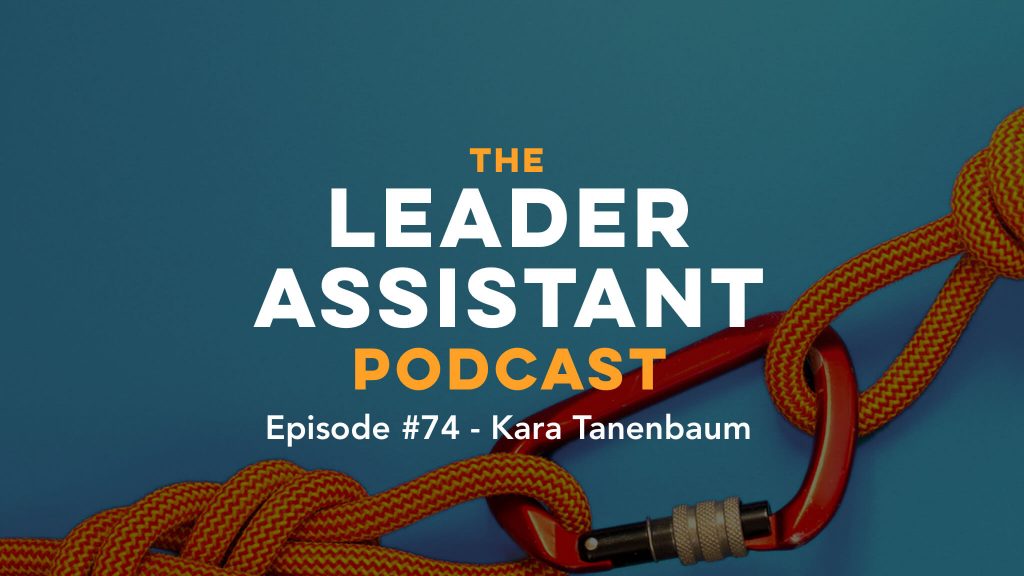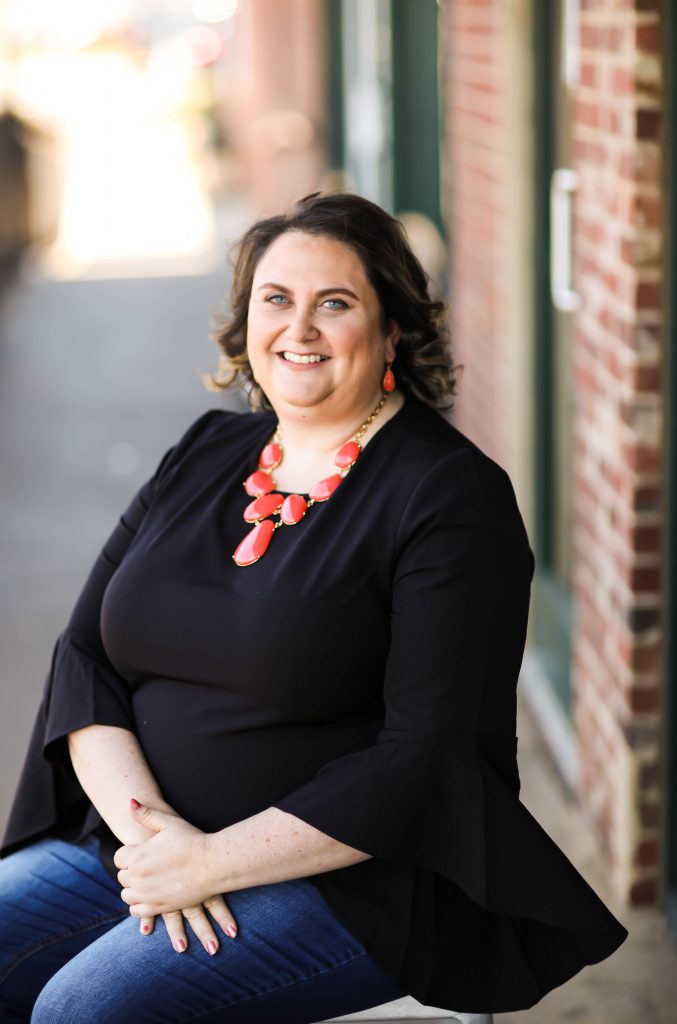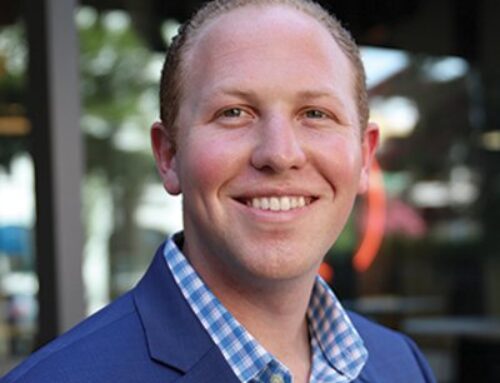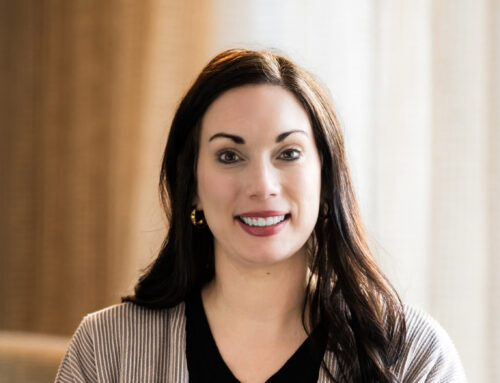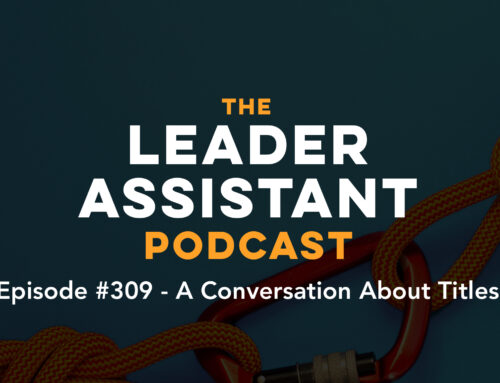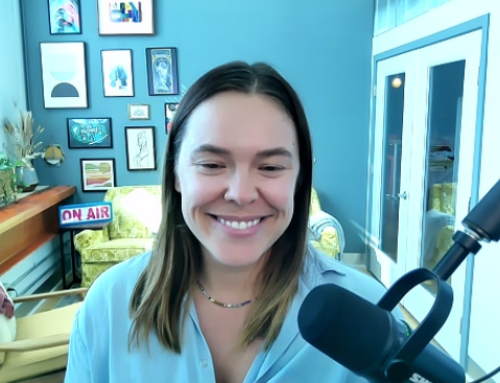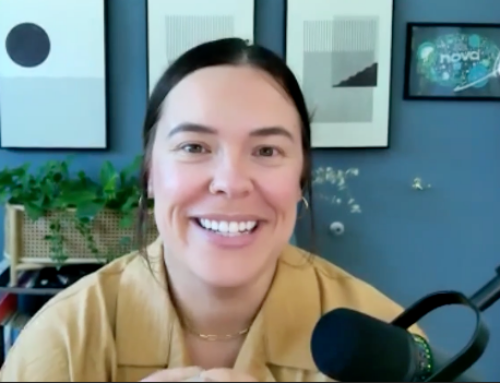Kara Tanenbaum is an Executive Assistant, providing C-level support in a strategic partnership for over sixteen years. She also side-hustles as a Virtual Assistant, specializing in all things digital marketing.
Kara shares tips on how to start a virtual assistant side-hustle, including thoughts on the importance of specializing, and how to market yourself and get more clients. She also talks about the cons of being a virtual assistant to keep us all grounded in reality.
SPONSOR FOR THIS EPISODE
Check out LifeSquire.com – an Assistant Resource Center focused on matching executives with assistants, and creating relationships – where both sides thrive. They would love to help you find the perfect job or work with you to enhance your skillset.
LEADER ASSISTANT MEMBERSHIP
Check out the Leader Assistant Membership for ongoing training, coaching, and community.
LEADERSHIP QUOTE
You are the average of the five people you spend the most time with.
– Jim Rohn
CONNECT WITH KARA
ABOUT KARA
Kara Tanenbaum is an Executive Assistant, providing C-level support in a strategic partnership for over sixteen years. She also side hustles as a Virtual Assistant, specializing in all things digital marketing.
Kara helps Executive Assistants with an entrepreneurial spirit create a thriving Virtual Assistant business from scratch.
THE LEADER ASSISTANT BOOK
Download the first 3 chapters of The Leader Assistant: Four Pillars of Game-Changing Assistant for FREE here or buy on Amazon here.
JOIN THE COMMUNITY
Join the Leader Assistant Slack Community here, or the Facebook Group here for bonus content and to network with other assistants who are committed to becoming leaders!
SUBSCRIBE
Subscribe to The Leader Assistant Podcast so you don’t miss new episodes!
You can find the show on Apple Podcasts, Spotify, Google Podcasts, Pandora, and Stitcher.
Join my email list here if you want to get an email when a new episode goes live.
LEAVE A REVIEW
If you’re enjoying the podcast, please take 2 minutes to rate and review the show on Apple Podcasts here. Each review helps me stay motivated to keep the show going!
—
EPISODE TRANSCRIPT
Kara Tanenbaum 0:00
Hi, I’m Kara Tanenbaum. Today’s leadership quote comes from Jim Rohn. You are the average of the five people you spend the most time with.
Podcast Intro 0:09
The Leader Assistant Podcast exists to encourage and challenge assistants to become confident game changing leader assistance. Thank you for listening to the Leader Assistant podcast. Hey everybody, it’s episode 74.
Jeremy Burrows 0:27
Hey friends today’s sponsor is life squire. They were founded by a former executive assistant looking to create a healthier relationship between current assistants and their clients. They found their niche and placing assistants in positions where you and your executive can thrive. If you’re an executive assistant, they would love to help you can visit their website at lifesquire.com/leaderAssistant, or call them at 405-889-4430 to find out how they can help you lifesquire.com/leaderassistant. Thanks so much for sponsoring life squire. Your sponsorship helps me do more episodes and stay motivated to keep going strong. And thank you for what you do for the executive assistant community. Alright, let’s jump into today’s interview. Hey, leader assistants. Thanks for tuning in to The Leader Assistant Podcast. It’s your host, Jeremy Burrows. And today I’m speaking with Kara Tanenbaum, Kara, how’s it going?
Kara Tanenbaum 1:28
It’s I’m doing great. How are you doing?
Jeremy Burrows 1:31
I’m doing all right. Where are you in the world right now.
Kara Tanenbaum 1:35
Right now, I live in Charlotte, North Carolina.
Jeremy Burrows 1:39
Awesome. So let’s, let’s start talking about your very first job out of school.
Kara Tanenbaum 1:47
My very first job was when I was 16 years old. And it was working for a retail store called Wixon sticks in the mall. And I was a sales associate. And there were two owners it was a husband and wife and they were so close to retirement that they were never there. So there was a full time person there during the day, who was like the assistant manager. And then in the evenings when I worked around around school hours, all of the staff were 16 and 17 year olds like myself, so we kind of ran the place, for better for worse. But something that I definitely learned, then that I still use today, some of the skills is that because the owners were barely there, we had to kind of learn the ins and outs of the job, everything from inventory to of course, handling the money and closing out at night and you know, ordering more merchandise and above all customer service. So I, I really enjoyed it, it was such a fun laid back atmosphere, you know, being with your friends and getting paid for it. But we also had to hustle. And so one thing that I took away from that looking back all of those years ago is that if you know the ins and outs of, of where you’re the company that you’re working for, you’re just so much more effective to your executive, knowing what each department does, and kind of just knowing the whole workflow of start to finish and what reports do what and, and who to go to in different departments. And usually it’s people coming to us for the answers as EAS. So I’ve found that that those skills have really stuck with me all of these years.
Jeremy Burrows 3:46
That’s awesome. So kind of tell us a kind of quick short version of the retail store to EA career progression,
Kara Tanenbaum 3:56
ah, so many jobs in between. But, but my very when I first became an EA, it was in 2003. And the position just came about without any previous experience in the admin field. I was in an event and meeting planner in the position before that. So the organizational skills and prioritize and all of those spinning plates definitely came in handy. And that helped me qualify for the position where I had the soft skills over the admin skills per se. I was a an assistant to the president and the publisher of commercial real estate magazines. And so it was the very first position where I did not have a successor so you know, we’ve all been there Right? Where we’re kind of just thrown into the water and how to train ourselves and rely on being resourceful so you know, we encounter that over and over again, I feel like no two days are alike. We never know what will be thrown at us. But that that’s how I got my very first EAA role was with that commercial real estate magazine publisher.
Jeremy Burrows 5:16
So where are you at today? Look back, I was gonna say, you’re still in a,
Kara Tanenbaum 5:21
still an EA, I’ve been an EA for going on 17 years. And, yeah, and so now I, I’m here in Charlotte, and I work for a facilities maintenance company. And, and my executive, the CEO of the company is as women owned, and I have finally over the years and have gained the confidence and step into that strategic partner role. And so I love working with her. She’s, she’s very, she’s a true entrepreneur and a risk taker. And I love just kind of riding in the, in the background, riding her coattails, so to speak. So yeah, you’re still doing it after all these years.
Jeremy Burrows 6:16
Awesome. So tell us a little bit about maybe one of the biggest mistakes you’ve made as an assistant,
Kara Tanenbaum 6:23
ah, the dreaded mistakes of not doing the double check, you know, sending an email and spelling the recipients name with two L’s instead of one or forgetting to invite someone to a meeting and the calendar invite. I actually just made one recently, I booked an appointment online with a doctor. But then I didn’t add it to my execs calendars. So the missed appointment made a huge impact because it cost her for a no show session. And I didn’t look professional to the doctor. So the lesson on this is to take the time to do a double check, and sometimes a triple check. Because if you’re like me, you ruminate about these little slip ups. And so the extra few minutes are totally worth it. I mean, I know we’re all very busy, but not so busy that we can’t be mindful of the double check and following through step by step before hitting the send button. Yeah, yeah.
Jeremy Burrows 7:22
Definitely double, triple, quadruple check.
Kara Tanenbaum 7:25
Yeah, it’s hard when we have so much on our plate. But I have found the hard way that if we’re not meticulous, it does just has much more of an impact in the long run. So it’s worth it.
Jeremy Burrows 7:40
What about managing your executive email inbox? Do you have a tip on kind of the process that you use or have used in the past?
Kara Tanenbaum 7:49
Yeah, and this actually was a work in process, I will say I have done a lot of research a lot of trial and error on managing different inboxes. And so my biggest tip is minimal sub folders and relying on that robust function of the search bar. Because nothing is ever really deleted, right? I mean, it’s still there. And so it’s, it’s overwhelming to have a lot of sub folders. And what I have done, that has worked well for both my EA up for my EA for my executive and myself is I just have two sub folders, I have an ad read and an ad delegate and I triage daily. If the action is two minutes or less, she’ll take care of it. If it’s referenced, I put it in the at Red. Because there’s not an action, she reads it, she puts it in the at read anything that I need to delegate, I’ll send it into the delegate folder so that I can then sent either she sends it on to someone depending on if there’s instructions involved or something I can take off her plate I take I go ahead and just do that. And I think that also creating filters to automatically tag and file those messages can save a lot of time in the organization process. But in addition, like the systems will never work if you don’t have time to actually work them. So if you can batch time on your execs calendar, for daily email management, even even on your own calendar, that definitely helps to once it’s once it’s streamlined. It’s all of 20 to 30 minutes that the exec has to really do if you’re fully into that. execs inbox, like I am. Triage daily is very important.
Jeremy Burrows 9:48
Yeah, that’s a great test I use I use most of those myself so I can verify.
Kara Tanenbaum 9:55
I might be on the right track then if I if if you’re doing it too then thank goodness we’re in it together.
Jeremy Burrows 10:03
So let’s talk a little bit about, you’ve kind of got a side hustle going, and I’m a big fan of side hustles. I think that, yes, everyone should have multiple streams of income. And I think that’s one of the best ways to kind of invest in your future. And so you specifically have a couple of virtual assistant clients, and you are also helping assistants who want to become virtual assistants. Tell us a little bit about how you got into doing virtual assistant work, and then how you help assistants kind of make that transition from working in the office as an EA to remote VA.
Kara Tanenbaum 10:45
Sure, so yeah, so definitely a fan of the side hustle for all those reasons that you mentioned. And about five years ago, about five years ago, I decided to start a freelancing side hustle called podcast production services to supplement supplement my eBay income. And I did this for a few years help podcasters with behind the scenes admin and marketing tasks, like their email lists and product launches, writing their show notes, booking their guest interviews, that sort of thing. And I loved my podcasting clients, and helping them to grow. But honestly, it was it became difficult to juggle for clients and be a full time EA. And I mean, I, at the time, I just I wasn’t ready, financially or emotionally to take the leap and going completely on my own yet. So at the time, I made the decision to finish out my current podcasting projects and concentrated solely on my EA role. And then since then, I’ve been able to, to manage a couple of clients as opposed to the workload that I had before. And so I still am a full time. But I also have a couple of VA clients in digital marketing that I work part very part time for each each month. And one of the things that was kind of a eureka moment for me was I’m constantly asked online and Facebook groups and on LinkedIn, how I got started doing an online as an online entrepreneur and I, I learned very quickly that my fellow EAS like me, we don’t have to sit behind a desk and work in the constraints of a nine to five and not earn what we what we should be earning. And so I was like, wait a minute, you know, let me step back a bit. Because when I first explored the world as a, as a virtual assistant, I had to figure out all the things how to brand myself and market land clients and determine my pricing and set up all the systems for my business. And I was so deep in the trenches that I wish I’d had this roadmap. And that was, that was the moment for me when I was like, You know what, I have something here, I don’t want other EAS to reinvent the wheel. And so that’s where EA to VA was born. Because I can share everything I learned as a step by step process for any EA who has an entrepreneurial spirit and wants that seamless roadmap, you know, to learn the ropes of, of getting, of starting a business and seeing that grow aren’t getting all those systems in place.
Jeremy Burrows 13:48
So it’s our, that’s awesome. So then if I’m an EA, and then I come to you and I say I want to become a virtual assistant, what’s the first thing you say are encouraged or challenged in?
Kara Tanenbaum 14:00
I would say start with the touchy feely things of your mindset and do some mindset work. Figure out your why. And I know that that isn’t. It’s not such an action step is like oh, you know, set up your web site and figure out a name for your company. And those are all great and important in terms of branding yourself, but it is a we have so many similar skills as an EA or VA, right, we can transfer those skills we are. We are badass, I mean, we can do all of that those for the client. But there’s also a mindset shift that goes from being an employee in a company to being a solopreneur. And Jeremy, I know you can relate because you juggle those two sides as well. So I would say first figure out your why research a bit to see if this is an industry you want to delve into? And and then once you’re like, Yeah, I can do this, get clear on your ideal client and the industry that you want to do want to work in, in. There’s a lot of things that we can do as EAS, but that doesn’t necessarily mean that we want to do them. So really think what are the things that we are our sweet spots? What do we love to do? People tell us all the time, they come to us for those particular things, what drives and fuels us and then align that with the pain points of your ideal client. And so once you get that going, you’ve got a clear roadmap to to move forward. And I I teach all of that, you know how to find how to find that ideal client and industry you want to work in?
Jeremy Burrows 16:02
That’s great. Yeah, that’s really good advice. As far as you know, what are you? What are what are people keep asking you to help with? That’s likely something that you can help others with. And yeah,
Kara Tanenbaum 16:12
our zone of genius is different for everybody. And yeah. And also what we want to do, I mean, you know, we, we can do a lot of things. But But, but when what really fuels us, what are things that we really just own? That that’s what you want to take on as your services as a virtual assistant.
Jeremy Burrows 16:37
So it kind of answered my next question, but let’s talk about it a little bit deeper, should virtual assistants specialize? Or should we kind of be Jack or Jane of all trades?
Kara Tanenbaum 16:52
I would highly, highly suggest that you specialize that you narrow your niche. Because if you try to, if you try to serve everybody, you end up serving no one. That’s a famous saying, I don’t know, I can’t quote who it’s from. But but so yes, so I would say definitely specialize, whether it’s the industry. So real estate, is an example of an industry podcasters or an industry, health and wellness is an industry also nailing down the ideal client that you want to work for. So when I had podcast Production Services, I helped podcasters it didn’t matter what industry they were in. But I only if you had a podcast I offered, I narrowed down who I wanted to work for. And it turned out that they all were entrepreneurs who had small businesses, but that you know that that was just really, after I narrowed down the pain points of a podcaster. It turned out that that’s who my clients were. But that’s how you find it. That’s how you get clients is getting nitty gritty, into your niche niching down to who you want to serve.
Jeremy Burrows 18:19
So once you get to that point where you’re like, This is the people these are people who want to serve. Do you have any marketing tips or you know, tips for finding clients?
Kara Tanenbaum 18:31
Yeah, so I Yeah, once you have nailed down your niche, I’m a firm believer in relationship building and developing connections. Marketing now it’s about them. It’s not about us. And so I have found clients and, and teach my students that if you happen to Facebook groups who are possibly could possibly use your services you can offer value for them. Be curious and ask questions about their business and their pain points so that you can answer the questions. You know, someone says how do I do this and you can answer you do X, Y and Z. You can talk about how you help, but definitely not in a salesy way. Because you’re not in those groups to sell your services. You’re there to build connections and offer free value so that your ideal clients grow to like and know you and trust you and believe me, building relationships is a very tremendous way to increase your client base right off the bat and referrals. Just getting to know people and and offering that value to them. They when it comes time for them to need your services as a virtual assistant. They’re going to know who you are because that you’ve already helped them with that free value of just being there is up port system for them.
Jeremy Burrows 20:01
Love it. So can you share a couple of tips for VAs who manage and this could be for EAS as well who manage multiple clients or multiple executives?
Kara Tanenbaum 20:14
Yes. So I will be honest in saying I have never managed more than one executive at a time, I’ve always had only one CEO, as my executive. And sometimes they’re, you know, they’re, they’re like two or three people, the workload and the demands, but as a virtual assistant, I have had multiple clients. And so a couple of things, one thing is knowing their style, because everyone has a different way of planning their day and managing their tasks. And if you find yourself working with more than a couple, two or more clients, it’s important to customize the methods of communication for each individual. Some, like face to face interactions, others are preferred, you know, just totally go with it and talk to me once a once a week and give me an email update. Or send me a, you know, send me something in our shared Google Doc. And that’s sufficient. But everybody vary. So I would kind of off the bat know their style, and and ask them, you know, what method of communication do they prefer? The other is learning to break down projects. And this has helped me even in my EA role is, you know, working for more than one person will inevitably mean that schedules and projects and deadlines will overlap. And so rather than attempting to tackle a mountain of work all at once, I’ve broken down multiple large projects into smaller manageable tasks, batching, those similar tasks, and it’s really hiked my productivity, it’s not only becomes more efficient, but it it really allows both me and my clients to track progress. And we can make adjustments as needed. And you really, when you batch those tasks, you find out where the priorities are very clearly. So you couldn’t get to those priority priority tasks right away. And then, you know, go through the to do list the rest of your to do list accordingly.
Jeremy Burrows 22:34
So I want to get a little bit honest here. And have you talked a little bit about the cons of being a VA, I know a lot of people market, this whole idea of oh, I’m sitting on a beach drinking a margarita and working and you know, life’s perfect. So can you talk kind of give us a reality check on the role of the VA and kind of set us back to reality.
Kara Tanenbaum 23:03
Wait, let me ask you have you been sitting on the beach,
Jeremy Burrows 23:06
not a beach guy up and sitting, sitting on a mountaintop with a bagpipe? Playing? You know, that’s what I that’s how I work.
Kara Tanenbaum 23:17
That’s how you do it. That’s how you roll you and your thoughts. That’s all you need. Yeah, reality check. So yeah, there’s the good and the bad. And sometimes the ugly. It again, I go back to that mindset, because it took me a while and, and I still, you know, I’m in the EAA full time still. So I, I enjoy what I do. And I enjoy being a servant leader and being that right hand woman. But at the end of the day, when I go home, and I’m working on my business, it is a completely different thing as far as Okay, now you’re the boss. And with that comes a lot of great, awesome goodness, but then there is reality check. So a couple of things. You don’t get vacation, and sick leave and pay vacation and sick leave the benefits all are on you. And that is a good thing. And that’s also you know, health insurance is out of pocket. You don’t get paid PTO time. So if you’re sick and you can’t work that could impact your productivity and deadlines for your client. So it is all about balancing that and and I think you know, there, there is a lot of flexibility with being a solopreneur or virtual assistant. They’re all you know, all the same thing being being your own boss. But with that you have to have the discipline. You can work in your pajamas, but if you’re sitting at home, and you’re working in your home office and you decide that there’s something on Netflix that you’d rather watch. That’s okay, that’s cool, as long as you have the discipline and the focus that you’re able to meet those deadlines. Fortunately, though, I have found that as an EA, we, we know how to meet deadlines, we know how to try to stay focused, we know about productivity. So that’s why it’s, it’s, to me, it’s just kind of like this ideal, like, symbiotic relationship like we we can transfer those skills as an EA very well, to being a solopreneur. Yeah, I think
Jeremy Burrows 25:42
that’s great. I agree. So you mentioned servant leader, what is what makes an assistant a leader?
Kara Tanenbaum 25:51
Every day, I think we practice leadership. So what, what makes what I feel like is later is being able to go from sitting in your executives office and listening to he or she vent, knowing it’s not about you, it’s about something with the company. And knowing that you can go from that, and or even making sure to check decisions with your executive, to then go into your desk and dealing with tiny little details. Or, you know, the drama that ensues. And working in an office environment, that back and forth, being able to adapt in that environment. To me, exudes leader, you are there for your executive who is the top of the hill. And you’re also there for the team members who, who do look to you as an extension of their executives. But knowing that you don’t have to be top of the chain to be a leader, that we’re all leaders in the company, we all have things that we can give and contribute to the success of the company and to our the happy human factor of working for the company. And so I think that we hold a very important role as that, that middle ground, so to speak, where, you know, we we have something to offer, and all different aspects of of the company.
Jeremy Burrows 27:36
Great. Totally agree. Thank you so much, Kara. I think you’re welcome excited about what you’re doing for EAS who want to become a VA excited about where you’re doing for just pas in general and your passion for the role. And just thanks so much for taking time out of your day to be on the show and share your tips and tricks.
Kara Tanenbaum 27:56
Thank you so much for allowing me to be to be part of your podcast. I enjoy it as a listener and I appreciate you very much and everything that you contribute to the EA industry. Our community is fierce. And thank you for being one of those influencers.
Jeremy Burrows 28:15
You’re welcome. My pleasure. Thanks again to Kara for a great interview. Feel free to reach out to her on LinkedIn and I will post her LinkedIn profile link in the show notes at leaderassistant.com/74 Leaderassistant.com/74. All right, we will talk to you next time.
Unknown Speaker 28:49
Goburrows.com

